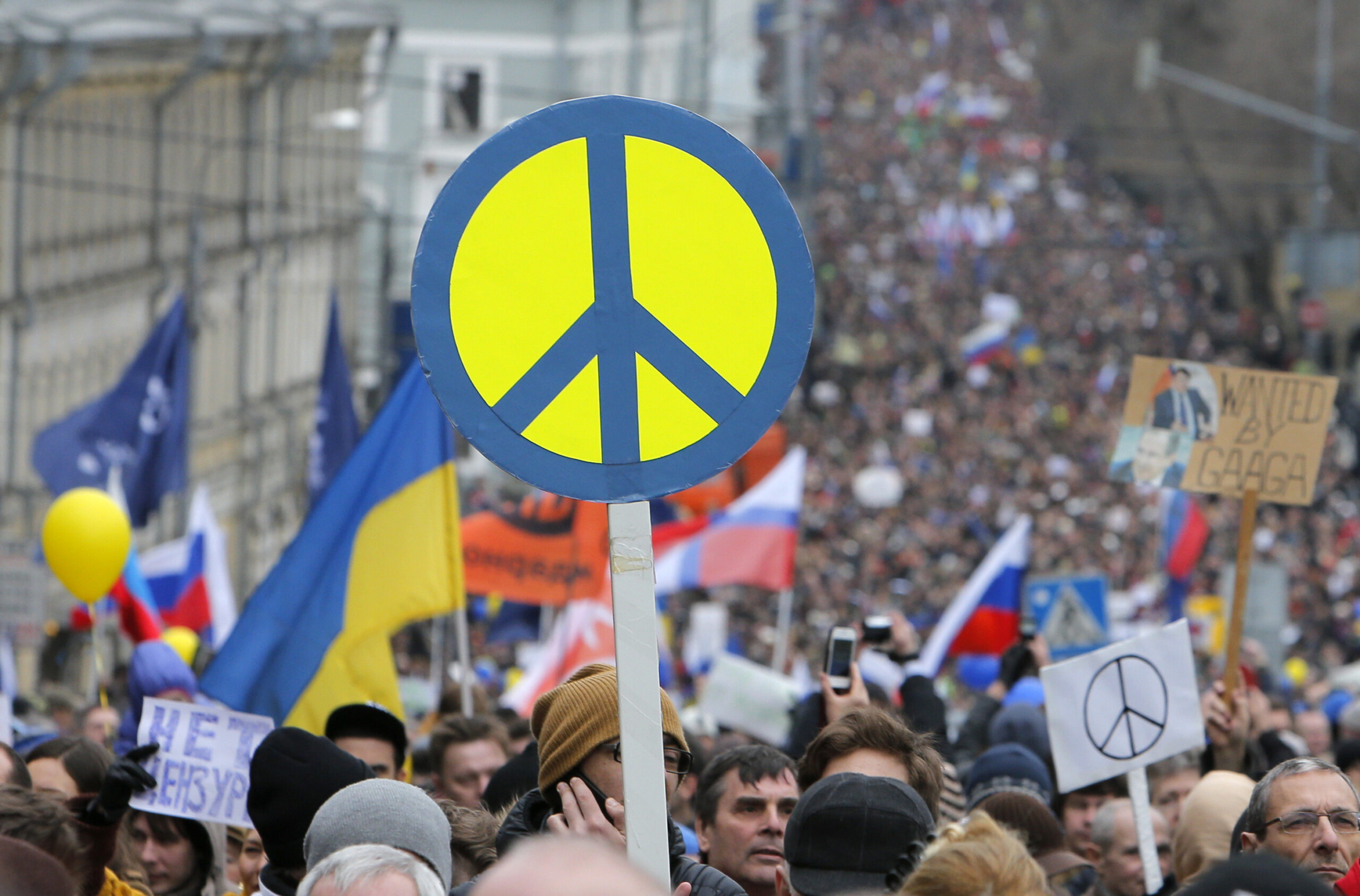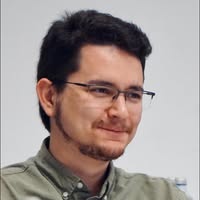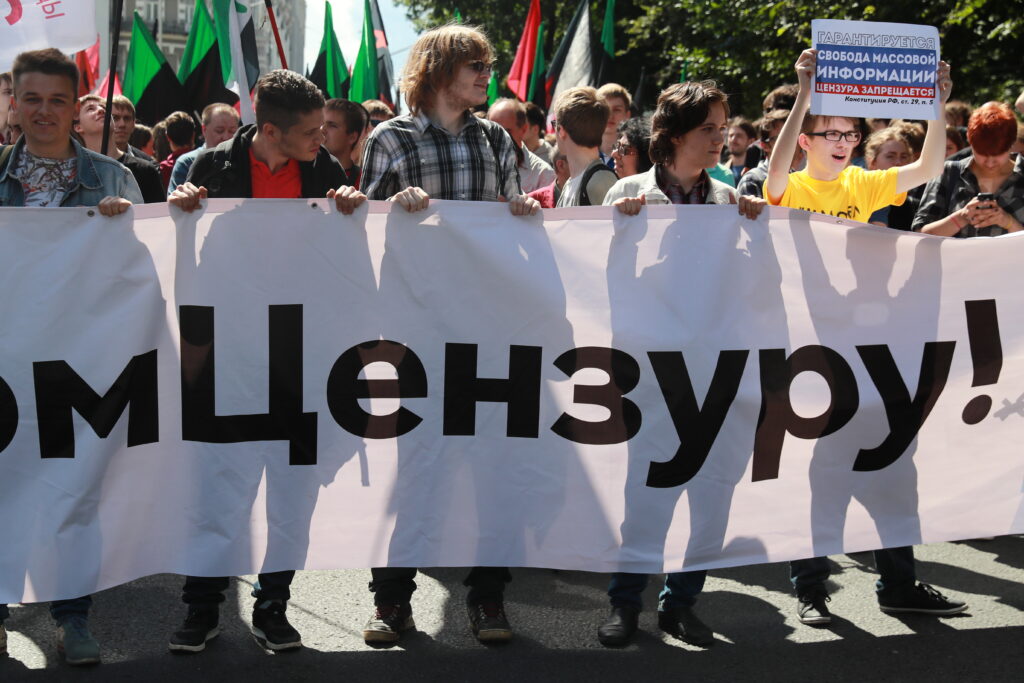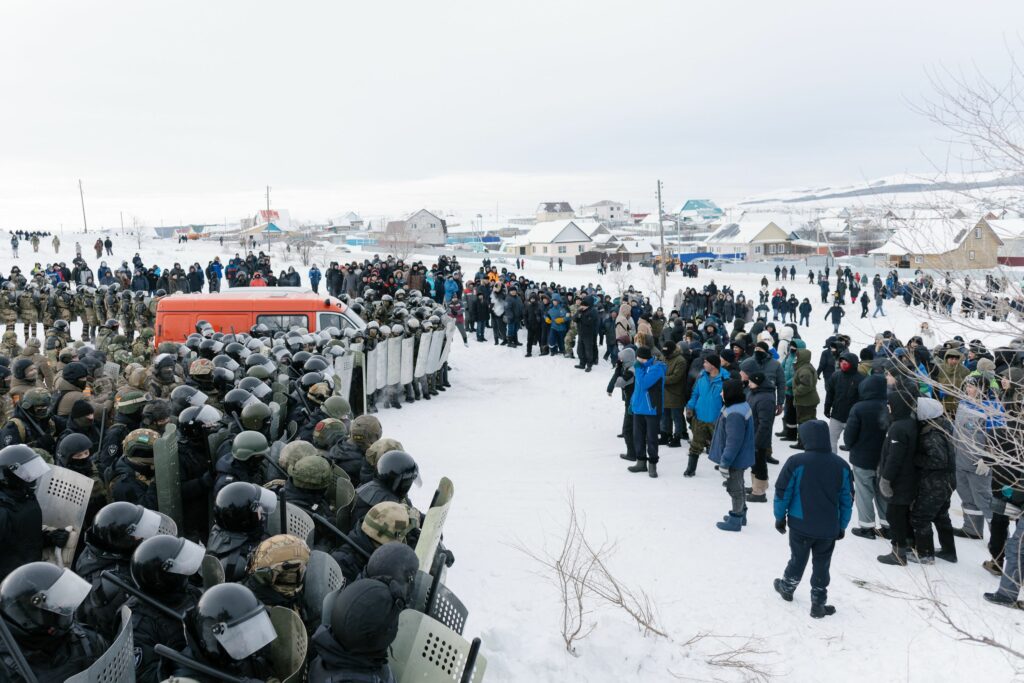Relations between Ukraine and Russia in the 21st century have become one of the most complex issues in international politics. Amid a bloody war, civil societies in Russia and Ukraine can hardly engage with each other. But did Russian politicians ever have a chance to become allies of Ukraine before the full-scale invasion? Analysis suggests that some opportunities for cooperation existed, but their potential was inherently limited.
Methodological Questions
Before delving into the history of this issue, it’s essential to define the scope of our discussion and the concepts used. Politicians in both countries operate within a mandate shaped by the expectations and interests of their voters. The key question is: what exactly does this mandate entail? Typically, voters are concerned with domestic issues related to living standards and security. Politicians focus on these topics because acting against their electorate’s expectations risks losing popularity. This dependence on public sentiment is particularly evident in liberal-democratic systems: the closer the connection with voters, the less room there is for maneuver.
This context is crucial when evaluating the actions of Russian politicians in their relations with Ukraine from 2013 to 2025. One can criticize the Russian opposition for insufficient activism, but the context in which Ukrainian-Russian political contacts occurred cannot be ignored. The impossibility of a full-fledged, equal partnership was due to the gradually shrinking opportunities for Russian opposition politicians. However, even within the realm of possible cooperation, clear limits existed: Ukrainian politicians could engage with Russians only as long as their actions didn’t provoke strong backlash from their own electorate, while Russians had to consider the sentiments and preferences of their supporters.
Thus, politics in Russia-Ukraine relations inevitably faced external and internal constraints, as voters on both sides directly or indirectly dictated the boundaries of political maneuver.
Maidan as a Starting Point
Relations between Ukrainian leaders and Russian opposition figures during the Putin era developed as official Moscow began showing wariness toward Ukraine’s pro-Western course. In 2002, the Union of Right Forces (SPS), led by Boris Nemtsov and Irina Khakamada, actively supported Viktor Yushchenko, viewing him as a promising democratic leader and potential Ukrainian president. During a visit to Kyiv, SPS signed a cooperation manifesto with Yushchenko’s «Our Ukraine» bloc, taking on an informal role as a mediator between Yushchenko and Russian authorities. Nemtsov openly predicted Yushchenko’s victory in the 2004 presidential elections and worked to dispel Russian myths about Yushchenko’s «anti-Russian» policies, particularly regarding the gas consortium and language issues.
Later, Nemtsov not only supported the first Maidan but personally traveled to Kyiv and openly backed Yushchenko. In 2005−2006, he served as an unofficial advisor to the Ukrainian president, proposing specific political steps: from freezing Yulia Tymoshenko’s privatization review plans to forming a broad coalition with the Party of Regions. Nemtsov emphasized that his role as a Russian politician was to support democratic processes in both Ukraine and Russia. His involvement in Ukrainian politics during this period was a unique example of real cooperation between a Russian liberal and Ukraine’s post-revolutionary leadership.
Bolotnaya: A View from Ukraine
Ukraine’s reaction to the 2011 Bolotnaya Square protests in Russia was generally sympathetic but skeptical. Ukrainian political and public figures, especially those involved in the 2004 Maidan, recognized the significance of Russians protesting against election fraud but were hesitant to draw direct parallels with Ukraine’s experience. For many Ukrainian observers, the Moscow protests resembled the 2002 «Ukraine, Rise!» action—a one-day demonstration by a fragmented opposition that failed to produce systemic change—rather than the Orange Maidan.
Ukrainian politicians Roman Bezsmertnyi and Taras Stetskiv acknowledged the moral importance of the Russian protests, noting the emotional enthusiasm of participants and even an aesthetic similarity in the «dreaming faces» of protesters. However, they emphasized a key difference: the 2004 Maidan was thoroughly prepared, politically structured, and built on organizational work and a predictable conflict around presidential elections. Bolotnaya, by contrast, appeared as a spontaneous outburst of discontent without a clear plan or leaders capable of turning emotions into results.
Euromaidan
During Euromaidan, most Russian opposition figures adopted a wait-and-see approach. Boris Nemtsov, one of the few to comment publicly, made it clear he did not consider it appropriate for Russian politicians to participate in Ukrainian protests. He noted that the 2004 Maidan was about election fraud, making it a matter of international concern, whereas Euromaidan concerned Ukraine’s foreign policy choice—an internal issue in which Russians, even oppositionists, should not directly interfere.
Alexey Navalny, Ilya Yashin, and other members of the Opposition Coordination Council were preoccupied with domestic issues in Russia, including trials related to the Bolotnaya case, and made no loud statements in support of Maidan. Some, like Yabloko’s Sergey Mitrokhin, explicitly stated that «it’s better to focus on our own country than interfere in others’ affairs.» Apart from individual journalists and activists like Petr Verzilov, who appeared at Kyiv rallies, Russian political involvement was minimal. When Nemtsov attempted to visit Kyiv in mid-December 2013, he was denied entry to Ukraine.
Euromaidan’s Victory, Crimea, and Donbas
After Russia’s annexation of Crimea and the outbreak of armed conflict in eastern Ukraine, a significant portion of the Russian opposition united in a clear anti-war stance, supporting Ukraine for the first time in years. Euromaidan’s victory and Yanukovych’s flight were seen by Russian liberals as a historic moment that opened possibilities for democratizing the post-Soviet space, including Russia itself. Ukraine’s lifting of entry bans for several Russian politicians in February 2014 created opportunities for a new phase of interaction.
One of the most striking episodes was Mikhail Khodorkovsky’s trip to Kyiv. On March 9, 2014, the recently released Khodorkovsky spoke on Maidan Nezalezhnosti to a massive crowd. He welcomed the new Ukraine, debunked propaganda myths about «fascists» on Maidan, and directly condemned Russia’s aggression. His words that «love cannot be bought» served as a rebuke to the Kremlin’s geopolitical deal-making logic, and his closing quote from Taras Shevchenko was a sign of respect for Ukrainian culture and struggle. This speech was symbolic: for the first time since the conflict began, such an influential and globally recognized Russian opposition figure publicly and unequivocally sided with Ukraine.
In spring 2014, the Russian opposition attempted organized anti-war resistance. On March 15, Moscow hosted the «Peace March,» a mass protest against the war with Ukraine. Despite intimidation and pressure from authorities, thousands took to the streets. Boris Nemtsov, Garry Kasparov, Alexey Navalny, and others condemned the annexation of Crimea and the Kremlin’s support for armed groups in Donbas. Navalny cautiously referred to Crimea as «illegally annexed territory» but openly opposed the war, calling it a strategic mistake by the Kremlin. Kasparov was more direct, labeling Russia’s actions a «war crime» and calling for decisive Western sanctions. In December 2014, he visited Kyiv, holding a simultaneous chess match with Ukrainian servicemen and volunteers, a gesture of solidarity that resonated positively in Ukrainian society.
Alongside public activism, a new form of interaction emerged: individual Russians joining Ukraine’s defense efforts with weapons in hand. Some Russian citizens voluntarily joined Ukrainian volunteer battalions. The most notable case was Ilya Bogdanov, a former FSB officer who sided with Ukraine, joined the Right Sector, and later received Ukrainian citizenship. Such cases were symbolic, demonstrating that resistance to Putin’s policies could take the form of personal sacrifice, including military involvement.
Russian cultural and intellectual opposition also voiced support for Ukraine. Actress Liya Akhedzhakova, musicians Andrey Makarevich and Boris Grebenshchikov, writers, and journalists openly condemned the war, faced harassment for their stance, but refused to back down. These voices created an alternative space within Russian society despite increasing state pressure.
The culmination of this anti-war protest wave was Boris Nemtsov’s assassination on February 27, 2015, in Moscow. Nemtsov was one of the loudest voices against the war with Ukraine, advocating for Crimea’s de-occupation and preparing a report titled «Putin. War» about Russia’s military presence in Donbas. The next day, a massive memorial event was held in Kyiv, and President Petro Poroshenko called Nemtsov a «great friend of Ukraine,» whose death was a loss for Ukrainians as well. The political murder in the heart of Russia’s capital was a grim reminder: open solidarity with Ukraine under Putin’s regime could cost one’s life.
In 2014−2015, the Russian opposition faced a new political reality. Those who chose to support Ukraine did so under intense domestic pressure, repression, surveillance, and arrests. Some left the country, while others continued the fight within. Yet, it was during this period that a new, albeit vulnerable, line of public interaction between Ukrainian society and Russian opposition circles began to form.
Attempts to Build Bridges: 2015−2021
In October 2015, a group of Russian oppositionists founded the «Russian Center» in Kyiv, aiming to create a platform in Ukraine to support anti-Putin forces and develop protest infrastructure. One of its initiators, Denis Vikhorev, noted that «Ukraine’s Maidan» provided refuge not only for Ukrainian political prisoners but also for Russians fleeing repression. The group primarily consisted of Russian nationalists forced to leave Russia due to persecution.
That summer, Maria Gaidar, an ally of Alexey Navalny and Nikita Belykh, accepted an offer to work in Mikheil Saakashvili’s team in the Odesa Regional Administration and soon received Ukrainian citizenship. In 2016, journalist Matvey Ganapolsky, who had moved to Ukraine in the 2000s after the crackdown on NTV, also became a Ukrainian citizen. In spring 2017, the «Free Russia House» opened in Kyiv, serving as a platform for discussions, cultural events, and aid to political emigrants.
In March 2017, former Russian State Duma deputy Denis Voronenkov, who had fled Russia and received Ukrainian citizenship, was killed by an assassin. Voronenkov had cooperated with investigations into the treason case of former Ukrainian President Viktor Yanukovych. His death, widely attributed to Russian special services, underscored that siding with Ukraine did not guarantee safety, even on Ukrainian soil. Nevertheless, his widow, opera singer Maria Maksakova, remained in Kyiv and continued to publicly criticize Russian authorities.
In winter 2018, former State Duma deputy Ilya Ponomarev testified in a Kyiv court on Yanukovych’s treason case, detailing the decision-making process behind Crimea’s annexation. According to Ponomarev, Vladimir Putin made the decision on the night of February 23, 2014, though some top officials favored an «Ossetian scenario» over direct annexation. Ponomarev, living outside Russia since 2014, received Ukrainian citizenship in 2019, joining the community of Russian oppositionists officially settled in Ukraine.
By 2020−2021, interactions between Russia’s non-systemic opposition and Ukrainian civil society were largely limited to public and media formats. In Vilnius, under Garry Kasparov’s leadership, the Free Russia Forum held conferences repeatedly discussing support for Ukraine. Some political emigrants relocated to Kyiv, and Ukrainian TV channels frequently invited Russian opposition figures like Mikhail Khodorkovsky, Vladimir Kara-Murza, or Kasparov.
Ukrainian authorities continued to publicly support Russian civil society. On July 28, 2019, Ukraine’s Foreign Ministry condemned the arrests and beatings of Moscow protesters, noting that such treatment of citizens revealed the Russian regime’s fear of political competition. On January 23, 2021, the ministry issued a statement condemning violence against peaceful protesters supporting Navalny, emphasizing that Russians deserve a government that respects human rights. Days later, on February 1, 2021, Ukraine’s Foreign Ministry called for increased sanctions on Russia due to «a new wave of gross human rights violations and violent actions» against oppositionists and journalists. Ukraine also granted asylum to persecuted Russians, such as Sergey Gavrilov (Novoe Velichie case) and Alexey Shvarts (Navalny’s team).
Opportunities for Cooperation During and After the Full-Scale War
With the start of the full-scale invasion on February 24, 2022, Ukrainian President Volodymyr Zelenskyy repeatedly called on Russian citizens to stop the aggression. In his early February-March 2022 addresses, he spoke of «thousands of killed and hundreds of captured» Russian soldiers, thanking Russians who «spread the truth» and «supported Ukraine,» specifically mentioning journalist Marina Ovsyannikova for her protest on Channel One.
However, as the war escalated and casualties mounted, Zelenskyy’s rhetoric hardened. He described «historic crimes» on occupied territories, accused propagandists of complicity in war crimes, and increasingly spoke of Russians’ collective responsibility for supporting their government’s actions. After reports of mass killings in Bucha, Zelenskyy sharply addressed Russian soldiers’ mothers, calling the troops «bastards» and «executioners,» later accusing Russians of looting Ukrainian land and noting they «didn’t take to the streets» when the invasion began, creating «their own world» where they felt «comfortable» killing Ukrainians. In April and May, he increasingly called for freezing Russian citizens’ assets and accounts abroad, arguing that any ties to Russia posed a danger and that «occupiers cannot be treated like other people.»
In August 2022, Zelenskyy proposed banning all Russians from entering Western nations and deporting those who had already left, arguing that the population bore responsibility for its choices and silent complicity with the Kremlin. Just months earlier, in March 2022, he had urged Russians to leave Russia to avoid paying taxes for the war. His rhetoric shifted from calls to «protest the war» and appeals to conscience to demands for isolation and visa restrictions for Russians.
This does not mean Ukrainian politicians have been unwilling to engage with Russian opposition forces since 2022. For instance, Oleksiy Arestovych and Mykhailo Podolyak have frequently given comments and interviews to Russian opposition media. However, their positions are unlikely to resonate widely with Russians sympathetic to Ukraine. This may reflect an intractable contradiction in Russian-Ukrainian political interactions: while the war continues, such contacts pose risks for both sides. For example, a 2024 Russian opposition forum in Lviv sparked discontent among local politicians. Meanwhile, many Russians, both those who left and those who stayed, find supporting the Ukrainian Armed Forces unacceptable, though this is a core demand from Ukraine.
In 2022, the Ukrainian administration grew disillusioned with the Russian opposition’s inability to influence Russia’s internal situation. This disillusionment manifested in a shift in rhetoric, advocacy for new global restrictions on Russian citizens, and cooperation only with Russians fully aligned with Ukraine’s stance, such as Ilya Ponomarev and Mark Feygin. Meanwhile, Russians who took up arms for Ukraine found little understanding or support in Russian society.
The war has deepened mutual distrust: for Ukraine, contacts with the Russian opposition became politically risky; for Russians, they became dangerous due to repression. A shared enemy—the Putin regime—has not been enough to forge a full-fledged alliance, as political priorities and societal expectations diverged. Yet, as neighboring states, Russia and Ukraine will inevitably face the need to resume dialogue after the war. History shows that dialogue is possible. French and German Resistance members during World War II could hardly find common ground, but postwar France and Germany managed to navigate a difficult path to reconciliation.










